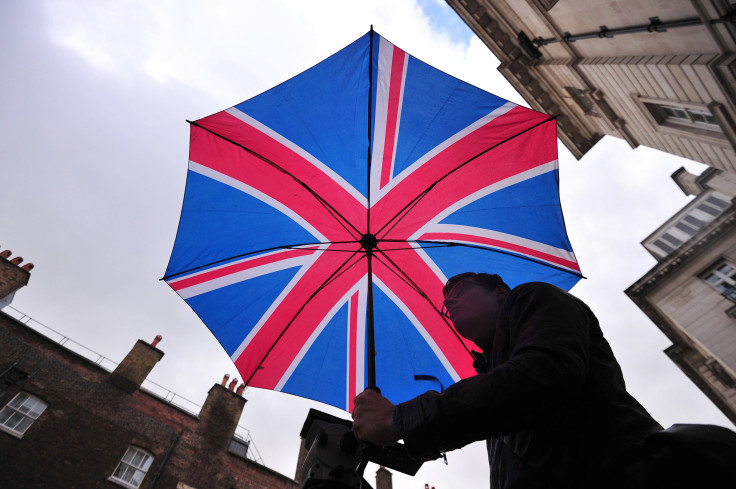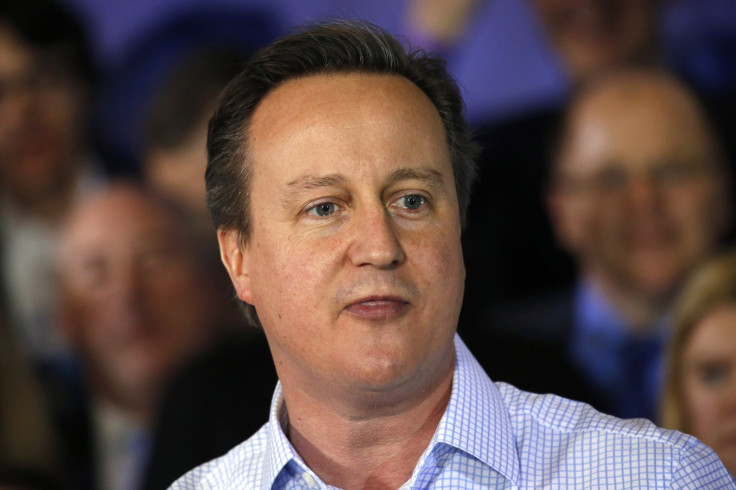EU Brexit 2016: Advocates Of A Free-Trading Britain Outside The European Union Face Long Odds

A British government report on the consequences of the U.K. leaving the European Union confirms what private experts say and what’s apparent under laws already on the books: A so-called Brexit, as the idea has become known, would shred the legal basis of Britain’s trade links with the rest of the world. Not only that but it also would create a 10-year vacuum that would hurt financial markets, investment and employment.
“A vote to leave the EU would be the start, not the end, of a process,” the government wrote in the report. “It could lead to up to a decade or more of uncertainty.”
The U.K.’s “decade or more” of uncertainty could begin this summer in the event British voters choose to leave the EU in the June 23 referendum that Prime Minister David Cameron has called to decide the question. Polling has consistently shown a slight majority in favor of remaining in the bloc, but critics of the union got a fillip recently when the popular mayor of London, Boris Johnson, joined the pro-Brexit campaign.
Others have warned of the potential negative effects of leaving, including BlackRock Inc., the world’s largest money manager, which said in a report to clients this week that a Brexit could lead to significant damage to the U.K. economy.
The June vote will be conducted after Cameron negotiated a new membership agreement with other EU members that gives Britain comparatively more flexibility to deny welfare benefits to migrants and seeks to protect London’s financial sector from any new exclusionary rules created by the smaller number of countries that use the common currency in Europe, the euro.
If U.K. voters reject EU membership on the basis of this recast membership deal, it would trigger — presumably as soon as Cameron resigned — a two-year process of negotiations to achieve disengagement that would be governed by the treaties, signed by Britain, that undergird the union. The process has never been used, and in the view of the prime minister’s government, the problems would start there.
“Uncertainty during the negotiating period could have an impact on financial markets, investment and the value of the pound, and as a consequence on the wider economy and jobs,” the government report states.
The Cameron government hasn’t been shy about stressing the bad effects that could come from a Brexit, and it lobbied the Group of 20 finance ministers, who gathered in Shanghai last weekend, to emphasize in their communiqué that the “shock of a potential U.K. exit from the European Union” ranks with Europe’s refugee crisis, volatile stock markets and low commodity prices as a major risk to the global economy.
“The U.K. government is trying to enlist as much firepower as it can muster to make it clear that Brexit is a bad deal,” said Peter Dixon, an economist at Commerzbank AG in London. “Cameron is using the G-20 as a forum to support his own interests, it is genuinely also a problem which the G-20 nations do not want to deal with later this year.”
After studiously avoiding any comment at all on the Brexit debate just before the G-20 meeting, U.S. officials backed Cameron’s government to the hilt. “We see a stronger U.K., a stronger EU, a stronger global economy and a more secure world with the U.K. in the EU,” Treasury Secretary Jacob Lew said. “We believe it’s important for the voters of the U.K. to think of the consequences this decision will have both within and outside the U.K.”
The EU is a complicated organization, one of the reasons the Cameron government argues the process of leaving it wouldn’t be wrapped up in two years. Its 27 other members would have to give a specific negotiating mandate to the European Commission, the body’s executive arm, to work out the details of a Brexit. The EU does this for every international negotiation, but this time Britain would not be at the table: It would be the opponent in the negotiation.
If the talks weren’t wrapped up in two years, the U.K. would exit the EU without any treaty governing its new relationship with the other 27 countries.
Chris Grayling, the Conservative leader of the House of Commons, has argued that since Britain has a $70 billion merchandise trade deficit with the EU, other countries that deliver those goods would have a strong interest in nailing down new trading arrangements.
“The jobs at risk if we do not rapidly move to a new trading arrangement are in Bavaria and in France and in Italy and in Spain,” Grayling said. “Nobody seriously thinks that the French government is going to turn round to its farmers, who sell plenty of produce to us at the moment, to say, ‘Guys, you’re not going to be able to sell that anymore because we haven’t reached a new trade deal.’”
The Center for European Reform, a London-based think tank, studied the legal and economic intricacies of a Brexit and concluded otherwise. In a recent report, the center pointed out the bulk of the British trade deficit is with two countries, Germany and the Netherlands, which may very well have an interest in clinching a deal quickly. But most countries that trade with the U.K. do not.
“Any agreement would require the assent of the remaining 27 members, some of whom buy more from Britain than they sell to it,” wrote the authors, John Springford and Simon Tilford.
Even if the U.K. were to succeed in negotiating a favorable agreement covering trade in goods and services, the effects of a Brexit on London’s financial role in Europe would be grim, according to Gregor Irwin, the chief economist of the consultancy Global Counsel and a former British government official.
“Established advantages and agglomeration effects mean the U.K. has a strong competitive edge that would be hard to dislodge,” Irwin said. However, existing EU regulations would make it harder for London to serve European markets, and “business could move,” he said.

The Cameron government’s report also emphasized that Britain’s withdrawal from the EU would involve dismantling “all the rights and obligation” that membership entails, not only trade rules. The European treaties that unify its market go beyond trade to include things such as mutual recognition of educational qualifications. And EU members also contribute to development funds for poorer regions, and coordinate their economic sanctions on countries such as Iran and Russia.
And until those details are ironed out, the U.K. wouldn’t be able to negotiate new agreements with countries outside the EU, since they’d first want to know the terms of Britain’s relationship with European countries. U.S. Trade Representative Michael Froman made waves during a visit to London in October when he commented on this point, to the effect that a Brexit could lead to the U.K. being lumped in with countries with which the U.S. is not particularly close.
The U.S. is currently negotiating a Transatlantic Trade and Investment Partnership agreement with the EU, and has hammered out a Trans-Pacific Partnership deal with 11 other Pacific Rim nations.
If Britain exited the EU, Froman told Reuters, it would face the same tariffs and trade barriers as other countries outside the U.S. free-trade network. “We’re not particularly in the market for [free-trade agreements] with individual countries,” he said. “We have no FTA with the U.K., so they would be subject to the same tariffs — and other trade-related measures — as China or Brazil or India.”
© Copyright IBTimes 2024. All rights reserved.





















